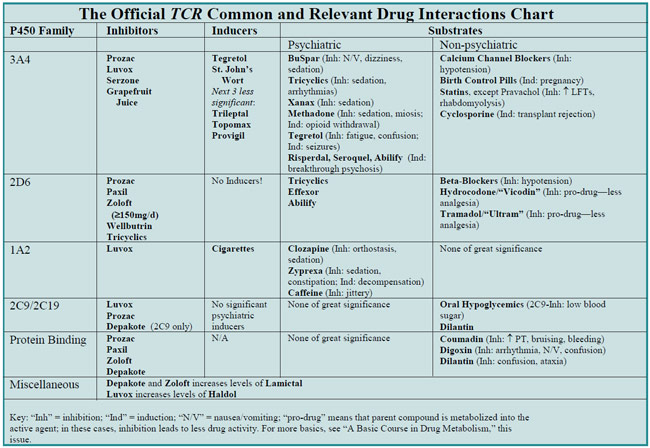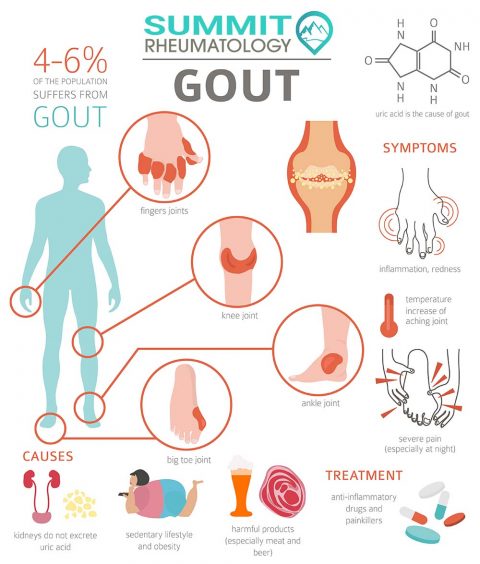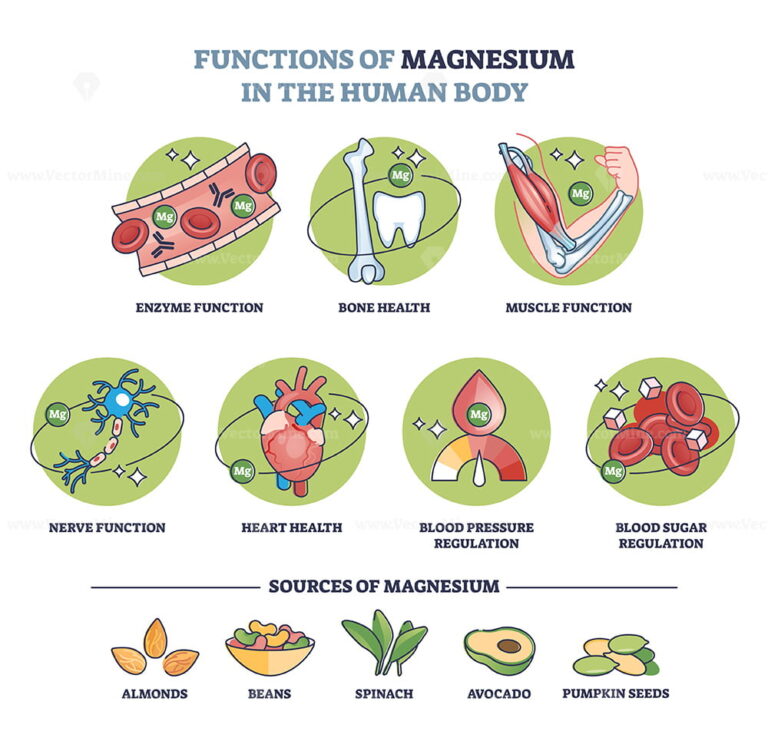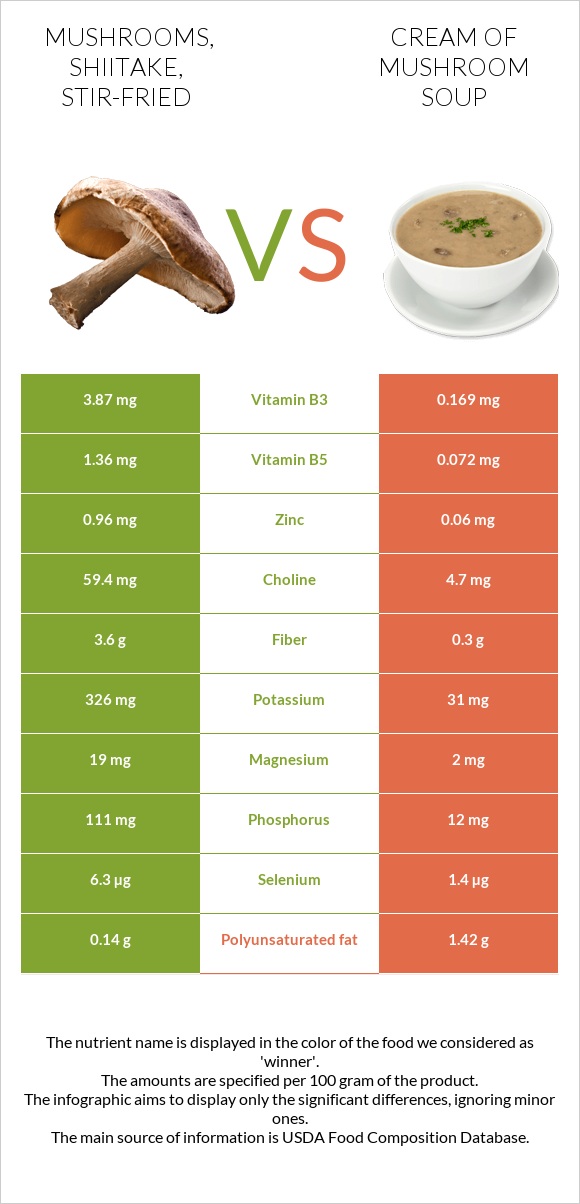Ask Your Pharmacist: The Crucial Drug Interactions You Need to Know Before Taking Zinc
The chill of flu season, the nagging feeling of a weakened immune system, or simply a desire for overall wellness often sends us reaching for a familiar ally: zinc. Widely available, affordable, and lauded for its immune-boosting, wound-healing, and antioxidant properties, zinc has cemented its place in many households as a go-to supplement. It feels innocuous, almost like a natural extension of a healthy diet. Yet, beneath this seemingly simple mineral lies a complex web of potential interactions that can silently undermine the efficacy of vital medications, or even lead to unintended health consequences.
This isn’t just a dry list of warnings; it’s a story. The story of an essential micronutrient, often taken for granted, whose silent work within our bodies can be profoundly disrupted by other substances we consume. It’s the story of the intricate biochemical dance happening within us, a dance where a misstep can have significant implications. For the knowledgeable consumer, understanding these interactions isn’t just a recommendation—it’s a critical component of proactive health management. And at the heart of navigating this complexity stands your pharmacist, a vital sentinel ready to illuminate the hidden pathways of drug-nutrient interactions.
Our journey begins by acknowledging zinc’s fundamental importance, then delves into the unseen mechanics of drug interactions, before finally unveiling the crucial specific entanglements zinc can have with various medications. We will equip you with the knowledge to ask the right questions, understand the risks, and ultimately, ensure your health regimen is working in harmony, not at cross-purposes.
Chapter 1: The Ubiquitous Mineral – Zinc’s Silent Role in Health
Before we explore its potential for conflict, let’s appreciate zinc for the remarkable multitasker it is. Zinc is an essential trace element, meaning our bodies cannot produce it, and we must obtain it through diet or supplementation. Its presence is required for over 300 enzymes to function correctly, making it a critical player in virtually every physiological process.
Imagine zinc as a master key, unlocking a vast array of cellular machinery. Its most celebrated role is perhaps in immune function. Zinc is crucial for the development and function of immune cells, including T-lymphocytes and natural killer cells, which are frontline defenders against pathogens. Deficiency can severely compromise immune response, making individuals more susceptible to infections. This is why it’s a popular choice for shortening the duration of the common cold.
Beyond immunity, zinc is indispensable for wound healing and tissue repair. It’s involved in collagen synthesis, cell proliferation, and the immune response at the site of injury. Think of it as a vital architect in the body’s repair crew.
Its influence extends to DNA synthesis and cell division, making it fundamental for growth and development, particularly during childhood and pregnancy. It contributes to taste and smell perception, with deficiency sometimes manifesting as a loss of these senses. Zinc also acts as an antioxidant, helping to protect cells from damage caused by free radicals, and plays a role in hormone regulation, including insulin and testosterone.
Given this impressive resume, it’s no wonder zinc supplements are so popular. They come in various forms—zinc gluconate, acetate, sulfate, picolinate, citrate, and orotate—each with slightly different bioavailability, but all aiming to deliver this essential mineral to the body. The recommended daily allowance (RDA) typically ranges from 8-11 mg for adults, though therapeutic doses for specific conditions might be higher.
The perceived safety and widespread benefits often lead consumers to view zinc as an entirely benign addition to their regimen. This perception, while understandable given its essential nature, can be a dangerous oversight when other medications are involved.
Chapter 2: The Unseen Dance – Understanding Drug Interactions
To truly grasp the significance of zinc’s interactions, we must first understand the fundamental concept of drug interactions themselves. A drug interaction occurs when one substance (a drug, food, supplement, or even another chemical) affects the activity of another substance when both are administered together. These interactions can lead to:
- Reduced efficacy: The medication or supplement doesn’t work as well as it should.
- Increased toxicity: The medication’s side effects become more pronounced or dangerous.
- Unexpected side effects: New or unusual reactions occur.
Drug interactions are broadly categorized into two types:
- Pharmacokinetic Interactions: These affect what the body does to the drug. They involve changes in the absorption, distribution, metabolism, or excretion (ADME) of a substance. For instance, one substance might prevent another from being absorbed into the bloodstream, or it might speed up its breakdown and elimination.
- Pharmacodynamic Interactions: These affect what the drug does to the body. They occur when two substances have similar or opposing effects on the body’s physiological systems. For example, two drugs that both lower blood pressure might cause an excessive drop when taken together.
Supplements, including minerals like zinc, are not exempt from these principles. The body treats them as chemical entities that must be processed, transported, and utilized. Their presence can profoundly alter the delicate balance of medication pathways.
Consider the complexity: medications are designed to target specific pathways or receptors. Introducing another substance, like a high dose of zinc, can be like throwing a wrench into a finely tuned machine. It can compete for absorption sites, alter enzyme activity, or change the pH of an environment crucial for a drug’s stability or solubility.
The stakes are high. For individuals relying on life-saving medications, an interaction could mean treatment failure. For those managing chronic conditions, it could lead to poor disease control or adverse events. For the health-conscious individual, it could mean wasted money on a supplement that isn’t working, or worse, inadvertently harming themselves. This unseen dance, therefore, demands our full attention and a commitment to informed choices.
Chapter 3: Zinc’s Entanglements – Crucial Specific Drug Interactions
Now, let’s turn the spotlight onto the specific medications that can clash with zinc. These interactions are not mere theoretical possibilities; they are clinically significant events that demand awareness and careful management.
3.1. The Antibiotic Antagonists: Quinolones and Tetracyclines
One of the most well-documented and clinically critical interactions involves zinc and certain classes of antibiotics: fluoroquinolones (e.g., ciprofloxacin, levofloxacin, moxifloxacin) and tetracyclines (e.g., doxycycline, minocycline, tetracycline).
- The Mechanism: Chelation. Zinc is a divalent cation (Zn2+). These antibiotics, particularly fluoroquinolones, have specific chemical structures that allow them to bind strongly to multivalent cations like zinc, iron, calcium, and magnesium. This binding process is called chelation. When zinc chelates with the antibiotic in the gastrointestinal tract, it forms an insoluble complex that cannot be absorbed into the bloodstream.
- The Clinical Implication: Treatment Failure. If the antibiotic isn’t absorbed, it cannot reach therapeutic concentrations in the body to fight the bacterial infection. This can lead to treatment failure, prolonged illness, antibiotic resistance, and potentially more severe health outcomes, especially for serious infections like pneumonia or urinary tract infections.
- The Story Unfolds: Imagine a patient with a bacterial infection, prescribed ciprofloxacin. Eager to support their immune system, they also take a zinc supplement. Unbeknownst to them, the zinc is essentially "capturing" the antibiotic in their gut, preventing it from ever reaching the bacteria. The patient continues to feel unwell, the infection persists, and they wonder why the medication isn’t working. This is a classic scenario that can be entirely avoided.
- Management: The solution is relatively simple but absolutely critical: separate the doses. Generally, zinc supplements should be taken at least 2 hours before or 4-6 hours after taking a fluoroquinolone or tetracycline antibiotic. Your pharmacist will often recommend a longer separation to be safe. This allows the antibiotic to be absorbed first before the zinc enters the digestive system.
3.2. The Diuretic Dilemma: Thiazide and Loop Diuretics
Diuretics, commonly known as "water pills," are frequently prescribed to manage conditions like high blood pressure, heart failure, and edema by increasing the excretion of water and salts from the body. Two major classes, thiazide diuretics (e.g., hydrochlorothiazide) and loop diuretics (e.g., furosemide, bumetanide), can impact zinc levels.
- The Mechanism: Increased Urinary Excretion. These diuretics primarily work by affecting electrolyte reabsorption in the kidneys. While their main targets are sodium and potassium, some also influence the excretion of other minerals, including zinc. Long-term use of these diuretics can lead to increased urinary loss of zinc.
- The Clinical Implication: Potential for Zinc Deficiency. Over time, this increased excretion can deplete the body’s zinc stores, potentially leading to a marginal or even frank zinc deficiency, especially in individuals who already have suboptimal zinc intake or other risk factors for deficiency (e.g., elderly, malabsorption). Symptoms of zinc deficiency include impaired immune function, delayed wound healing, hair loss, and changes in taste perception.
- The Story Unfolds: An older patient, managing chronic hypertension with hydrochlorothiazide for years, might slowly start noticing persistent fatigue, frequent colds, or a strange alteration in their sense of taste. They might attribute it to aging, unaware that their essential medication is subtly eroding their zinc status.
- Management: For patients on long-term diuretic therapy, awareness is key. Healthcare providers, particularly pharmacists, should monitor for signs of zinc deficiency. Dietary intake of zinc-rich foods should be encouraged, and in some cases, a zinc supplement may be recommended under medical supervision to prevent or correct deficiency, carefully balancing it with the ongoing diuretic therapy.
3.3. The Chelating Conundrum: Penicillamine
Penicillamine is a powerful chelating agent prescribed for specific conditions, most notably Wilson’s disease (a genetic disorder causing copper accumulation) and severe rheumatoid arthritis.
- The Mechanism: Indiscriminate Chelation. Penicillamine is designed to bind to heavy metals and facilitate their excretion from the body. However, it is not highly selective and will chelate not only the target metal (copper in Wilson’s disease) but also other essential divalent metals, including zinc.
- The Clinical Implication: Significant Zinc Depletion. When penicillamine binds to zinc, it forms a stable complex that is then excreted, leading to a rapid and substantial depletion of the body’s zinc stores. This can quickly precipitate a severe zinc deficiency with all its associated symptoms.
- The Story Unfolds: A patient undergoing treatment for Wilson’s disease, already grappling with a serious illness, begins to experience profound fatigue, skin issues, or immune problems. The very drug meant to save their life is inadvertently stripping them of another vital nutrient.
- Management: Patients on penicillamine therapy almost invariably require zinc supplementation. This is a delicate balance, as the zinc supplement itself can compete with penicillamine for binding, potentially reducing penicillamine’s efficacy against the primary target (copper). Therefore, the timing and dosage of zinc supplementation must be meticulously managed by a physician, often with the close involvement of a pharmacist, to ensure adequate zinc status without compromising the primary treatment.
3.4. The Iron Impasse: Iron Supplements
Iron and zinc are both essential trace minerals, and their absorption pathways in the intestine are notoriously competitive.
- The Mechanism: Competitive Absorption. Both iron and zinc are absorbed via similar transport proteins in the small intestine. When high doses of one are present, they can compete for these limited binding sites, thereby inhibiting the absorption of the other. While high doses of iron can impair zinc absorption, high doses of zinc are also known to impair iron absorption.
- The Clinical Implication: Reduced Absorption of Both. The practical consequence is that taking high doses of iron and zinc together can reduce the bioavailability of both minerals, diminishing the benefits of supplementation. This is particularly relevant for individuals who are deficient in both, such as pregnant women or those with certain malabsorption conditions.
- The Story Unfolds: A woman who is both anemic (iron deficient) and has low zinc status starts taking both supplements simultaneously, hoping to quickly restore her levels. However, by taking them together, she’s inadvertently creating a bottleneck in her gut, slowing down the absorption of both and prolonging her deficiencies.
- Management: The standard recommendation is to separate the intake of high-dose iron and zinc supplements by at least 2-4 hours. If both are needed, consider taking iron in the morning and zinc in the evening, or vice-versa. For general multivitamins containing both in lower doses, the competition might be less pronounced, but for targeted high-dose supplementation, separation is crucial.
3.5. The Copper Conundrum: Copper Supplements
The relationship between zinc and copper is a classic example of mineral antagonism and is often therapeutically exploited.
- The Mechanism: Metallothionein Induction. High doses of zinc induce the synthesis of a protein called metallothionein in the intestinal cells. Metallothionein has a higher affinity for copper than for zinc. Once synthesized, metallothionein binds to dietary copper, trapping it within the intestinal cells and preventing its absorption into the bloodstream. The copper is then excreted when these intestinal cells are shed.
- The Clinical Implication: Copper Deficiency. While this mechanism is precisely why zinc is used to treat copper overload conditions like Wilson’s disease, for individuals taking copper supplements or with normal copper status, high-dose, chronic zinc supplementation can lead to copper deficiency. Copper deficiency can cause anemia, neurological problems (e.g., nerve damage), and immune dysfunction.
- The Story Unfolds: An individual taking zinc for immune support, perhaps in higher doses than recommended, also takes a separate copper supplement, thinking they are maintaining a balanced intake. Over months, they might develop unexplained fatigue, tingling in their extremities, or a worsening of their immune issues, unaware that their zinc supplement is actively blocking the absorption of their copper.
- Management: The balance between zinc and copper is delicate. For most people, a well-balanced diet provides sufficient copper. If zinc supplementation is necessary, especially at higher doses or for prolonged periods, it’s prudent to consider a supplement that contains a small amount of copper (e.g., 1-2 mg) to maintain balance, or to discuss copper monitoring with a healthcare professional. Conversely, if copper deficiency is a concern, high-dose zinc should be avoided or carefully managed.
3.6. The Gastric Gatekeepers: Antacids, Proton Pump Inhibitors (PPIs), and H2 Blockers
Medications that reduce stomach acid, such as antacids (e.g., calcium carbonate, magnesium hydroxide), H2 receptor blockers (e.g., famotidine, ranitidine), and proton pump inhibitors (PPIs) (e.g., omeprazole, lansoprazole), can indirectly affect zinc absorption.
- The Mechanism: Altered Gastric pH. Some forms of zinc, particularly zinc sulfate, require an acidic environment in the stomach to be properly ionized and absorbed. By reducing stomach acid, these medications can decrease the solubility of zinc compounds, thereby impairing their absorption.
- The Clinical Implication: Reduced Zinc Absorption. Chronic use of acid-reducing medications, particularly PPIs, has been associated with a potential for reduced absorption of various micronutrients, including zinc. This can lead to a gradual decline in zinc status over time, especially in individuals with already marginal intake.
- The Story Unfolds: A person suffering from chronic acid reflux relies on a daily PPI. Unbeknownst to them, the very medication providing relief is making it harder for their body to absorb zinc from their diet and any supplements they might take. Over time, they may experience subtle signs of zinc deficiency without connecting it to their acid reflux medication.
- Management: While the interaction is generally considered less severe than with antibiotics, it’s still worth noting for long-term users of acid-reducing medications. If zinc supplementation is deemed necessary, choosing forms like zinc picolinate or zinc citrate, which are less dependent on gastric acidity for absorption, might be beneficial. Pharmacists can offer guidance on appropriate zinc forms and monitor for any signs of deficiency. Separation of doses (2 hours) for antacids might also be helpful.
3.7. The Steroid Scrutiny: Corticosteroids
Corticosteroids (e.g., prednisone, dexamethasone) are powerful anti-inflammatory and immunosuppressive drugs used for a wide range of conditions from asthma to autoimmune diseases.
- The Mechanism: Altered Metabolism and Excretion. Long-term use of corticosteroids can affect zinc metabolism, potentially leading to increased urinary excretion of zinc and alterations in its distribution within the body. Some studies suggest corticosteroids can induce a shift of zinc from plasma to intracellular compartments, and also increase its elimination.
- The Clinical Implication: Potential for Zinc Deficiency. Chronic corticosteroid therapy can increase the risk of zinc deficiency, which, when combined with the immunosuppressive effects of the steroids, could further compromise immune function or wound healing.
- The Story Unfolds: A patient on long-term prednisone for an autoimmune condition might already be dealing with multiple side effects. If they also develop recurrent infections or poor wound healing, it might not just be the underlying disease or the direct immunosuppression from the prednisone, but also an unrecognized zinc depletion exacerbated by the steroid.
- Management: For patients on chronic corticosteroid therapy, monitoring zinc status and discussing potential supplementation with a healthcare provider is prudent. This interaction highlights the complex interplay between medications and essential nutrients in managing chronic disease.
Chapter 4: The Pharmacist’s Insight – Your First Line of Defense
In the intricate tapestry of modern medicine, where polypharmacy (the use of multiple medications) is increasingly common, and supplements are often added without professional oversight, the role of the pharmacist has never been more critical. They are not merely dispensers of pills; they are medication experts, uniquely positioned to identify and mitigate potential drug-nutrient interactions.
Why Your Pharmacist is Indispensable:
- Comprehensive Medication Review: Pharmacists are trained to review a patient’s entire medication profile, including prescription drugs, over-the-counter (OTC) medications, herbal remedies, and dietary supplements. This holistic view allows them to spot potential clashes that a physician, focused on the primary disease, might miss.
- Deep Knowledge of Mechanisms: They understand the pharmacokinetic and pharmacodynamic principles that govern drug interactions. They can explain why zinc interacts with an antibiotic or a diuretic, not just that it does.
- Personalized Advice: A pharmacist can offer tailored recommendations based on your specific health conditions, medications, and lifestyle. They can advise on optimal timing for supplements, suggest alternative forms of zinc, or recommend specific monitoring strategies.
- Accessibility: Pharmacists are often the most accessible healthcare professionals. You don’t need an appointment to ask a quick question about a supplement interaction. Their proximity makes them an invaluable resource for immediate concerns.
- Monitoring and Prevention: They can help you understand what symptoms to look for that might indicate an interaction or a deficiency, empowering you to be an active participant in your health.
What You Should Tell Your Pharmacist:
To empower your pharmacist to provide the best advice, you must be completely transparent. When discussing any new supplement or medication, or during a routine medication review, make sure to disclose:
- ALL Prescription Medications: Even those you’ve been taking for years.
- ALL Over-the-Counter Drugs: Including pain relievers, antacids, cold remedies, etc.
- ALL Dietary Supplements: Every vitamin, mineral, herbal product, and protein powder.
- Your Medical Conditions: Any diagnoses you have, as these can influence interactions.
- Any Recent Changes: New symptoms, changes in diet, or lifestyle.
Think of your pharmacist as a detective, piecing together clues to protect your health. The more information you provide, the better equipped they are to solve the puzzle of potential interactions. Asking "Could this zinc supplement interact with any of my medications?" should become as routine as asking about side effects.
Chapter 5: Navigating the Supplement Landscape – Practical Advice for the Knowledgeable Consumer
Armed with a deeper understanding of zinc’s crucial role and its potential for interaction, you are now better equipped to navigate the supplement landscape. This knowledge isn’t meant to instill fear, but rather to foster informed decision-making and proactive health management.
Here are practical steps for the knowledgeable consumer:
- Full Disclosure is Non-Negotiable: This is the golden rule. Every time you visit your doctor or pharmacist, provide a complete and up-to-date list of all medications (prescription, OTC), and all supplements (vitamins, minerals, herbals, protein powders). Do not assume anything is too minor to mention. Many significant interactions involve seemingly innocuous supplements.
- Timing is Everything: For interactions like those with antibiotics or iron, the timing of administration is paramount. If advised to separate doses, adhere strictly to the recommended intervals (e.g., 2-4 hours before or after). Set reminders if needed.
- Understand the Dose and Duration: The risk and severity of interactions are often dose-dependent. Higher doses of zinc, particularly those exceeding the RDA (e.g., therapeutic doses for cold treatment), are more likely to cause significant interactions. Chronic, long-term use of zinc also increases the likelihood of interactions like copper depletion or issues with diuretics. Discuss appropriate dosing and duration with a healthcare professional.
- Be Aware of Zinc Forms: While the core interaction mechanisms remain, some forms of zinc (e.g., picolinate, citrate) might be absorbed better in conditions of reduced stomach acid compared to others (e.g., sulfate). If you’re on acid-reducing medications, discuss the best zinc form with your pharmacist.
- Look for Symptoms of Deficiency or Excess:
- Zinc Deficiency: Impaired immune function (frequent colds), slow wound healing, hair loss, changes in taste/smell, skin lesions, diarrhea, fatigue.
- Copper Deficiency (from excess zinc): Anemia, neurological problems (numbness, tingling, weakness), immune dysfunction.
- Zinc Toxicity (rare from supplements, usually very high doses): Nausea, vomiting, abdominal pain, diarrhea, metallic taste.
Be attuned to these changes and report them to your doctor or pharmacist.
- Avoid Self-Diagnosis and Self-Treatment: If you suspect an interaction or a deficiency, do not adjust your medication or supplement regimen on your own. Always consult a healthcare professional. They can conduct appropriate tests, interpret symptoms, and provide safe, evidence-based recommendations.
- Regular Medication and Supplement Review: Your health status and medication needs can change over time. Make it a habit to periodically review all your medications and supplements with your pharmacist, ideally once a year or whenever a new medication is added or discontinued.
- Question the "More Is Better" Mentality: With supplements, especially minerals, exceeding recommended doses without medical justification can be counterproductive and increase the risk of interactions and adverse effects. A balanced diet often provides sufficient zinc for most healthy individuals. Supplementation should be purposeful and guided.
Conclusion: The Power of Informed Choices
The story of zinc and its interactions is a compelling narrative of how seemingly disparate elements within our health regimen can intertwine, for better or for worse. Zinc, an essential mineral celebrated for its widespread benefits, is far from an inert substance when introduced into the complex biochemical environment of the human body, especially alongside pharmaceuticals.
For the knowledgeable consumer, this story is a powerful call to action. It underscores that true wellness is not simply about adding beneficial elements but about understanding their intricate relationships. It’s about recognizing that every pill, every capsule, every drop we ingest has the potential to influence the delicate balance of our internal systems.
The crucial takeaway is clear: Ask Your Pharmacist. They are the unsung heroes of medication safety, the guardians of the intricate dance between drugs and nutrients. By being open, asking informed questions, and actively engaging with your healthcare team, you transform from a passive recipient of advice into an empowered architect of your own health. Let the knowledge of these crucial drug interactions be a testament to your commitment to informed choices, ensuring that your journey towards optimal health is one of harmony, not unintended conflict.







